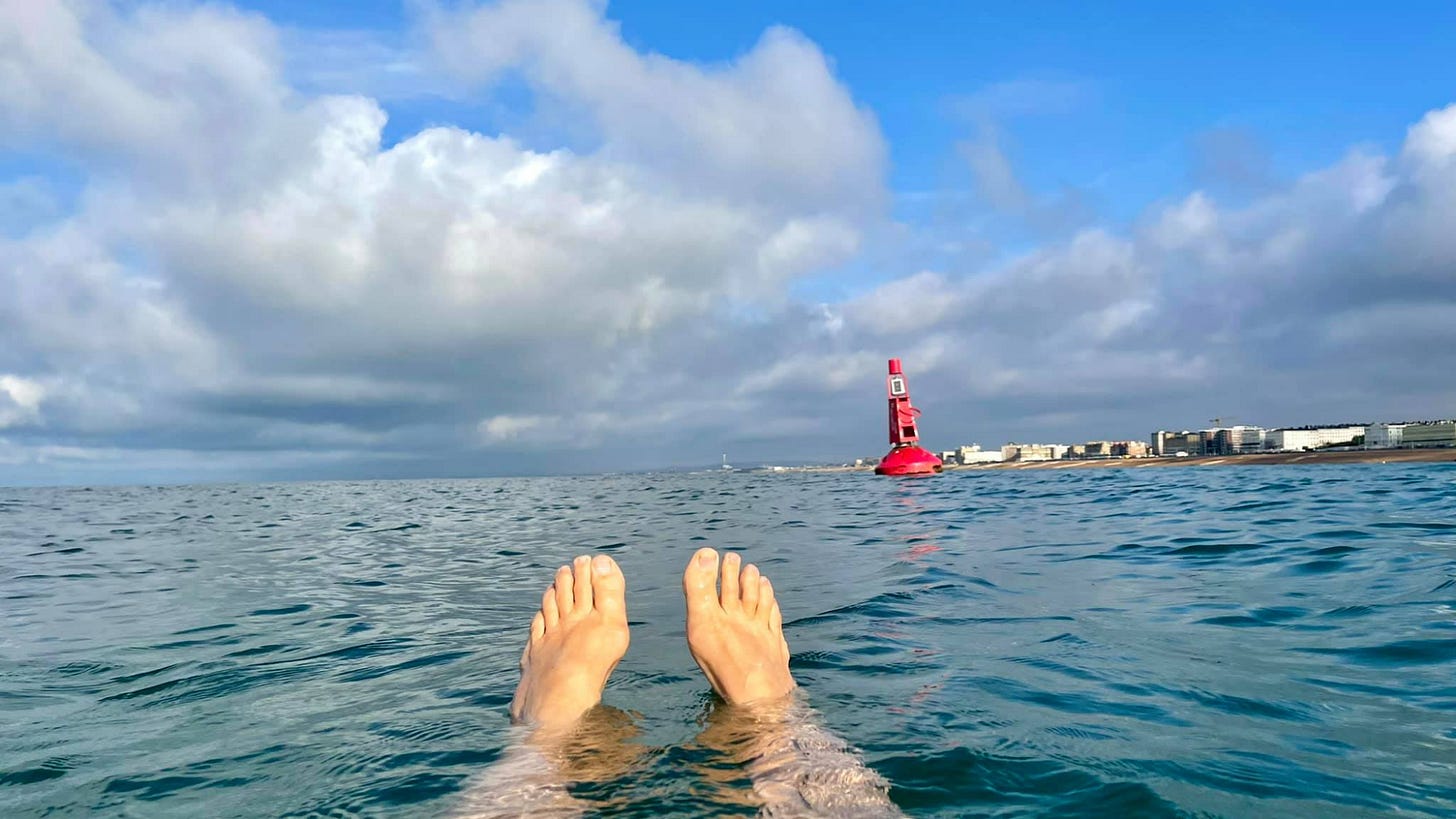This article is specifically for sea swimming but much of the information is useful for all types of outdoor swimming. We will look at all types of coastal weather and adaptations and adjustments that may be required to ensure you swim safely. We touch on the basics of wind but there is so much to know and learn about this particular weather type it has spilled over into another article which will be published next week……….
Weather types
Sun
What could be nicer than swimming in the sunshine? The lure to swim in the sea when the sun is shining can be irresistible. But when the sun is shining you are more prone to skin sun damage and dehydration. So protect your skin, particularly when you have a lot of skin exposed in just a costume. Use sun cream, making sure it is marine friendly and/or wear rash vests and wetsuits - so less of your skin is exposed to the suns harmful rays. And drink lots of water! Swimming is exercise and when you exercise you sweat - you just don’t notice the water you lose when you are in the water.
With the arrival of sunshine comes the inevitable algae blooms. These are not dangerous but can be smelly when it begins to dieback and makes the water very murky close to shore. It’s been likened to swimming through fermenting beer and can be misidentified as sewage. After the algae blooms the jellyfish come. They all sting to varying degrees. A few other summer watch outs are weever fish which are very painful if you tread on their stinging spines.
So key things to consider when it’s sunny and you’re sea swimming; 1. Skin exposure - make sure you cover up or apply marine friendly sun cream regularly. 2. Stay hydrated. You need to replenish the water you lose and use while swimming in warmer climes. 3. The air temperature may be warm but the sea takes a lot longer to warm up and it is still classified as cold water under 16 degrees which many bodies of water in the UK do not creep above all year. Cold Water shock remains a risk. 4. Sunshine brings marine life with it. Footwear and coverage costumes will prevent bites and stings.
Keep reading with a 7-day free trial
Subscribe to Seabirds’s Substack to keep reading this post and get 7 days of free access to the full post archives.





